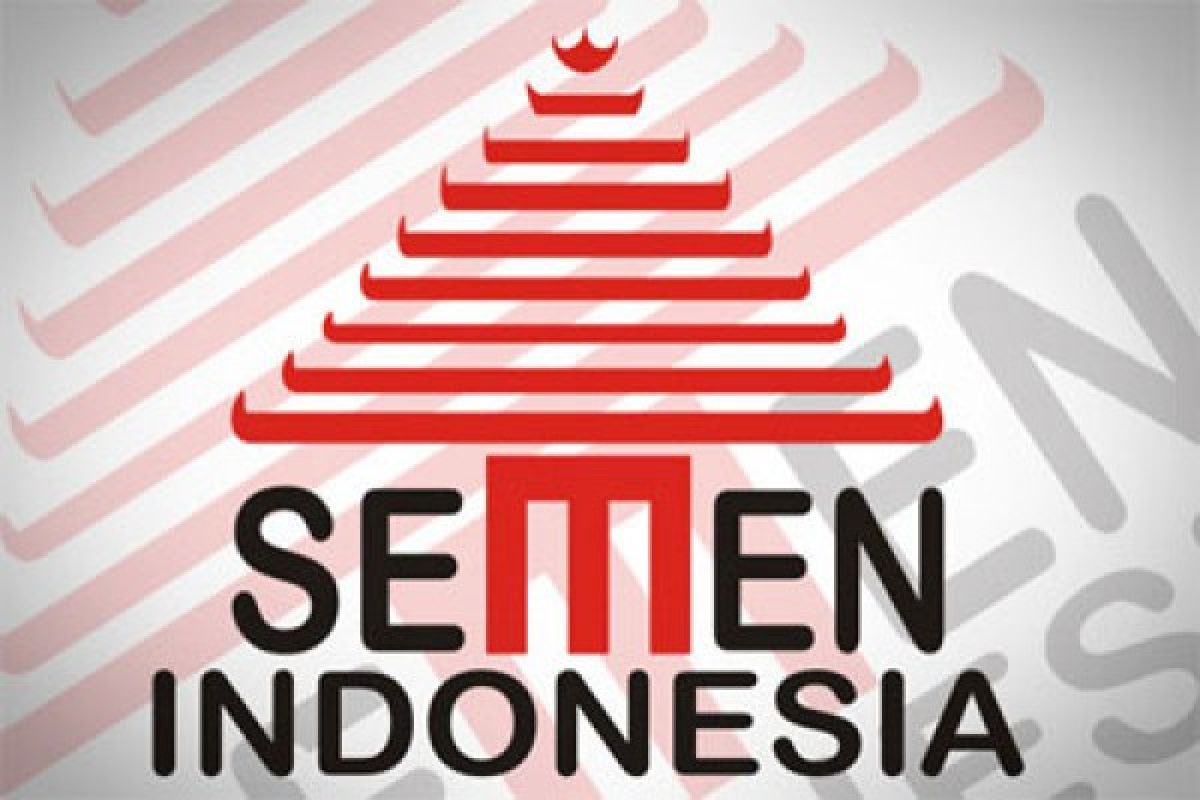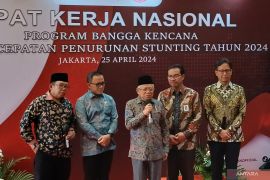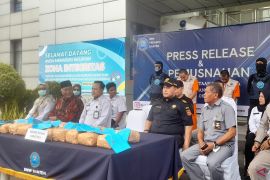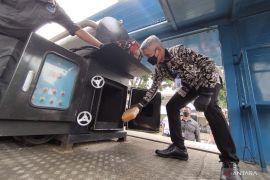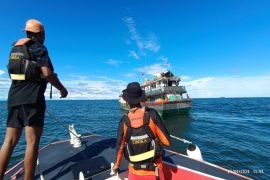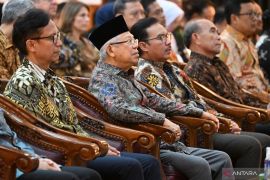In its efforts to increase the industrial vocational program, Semen Indonesia has launched a partnership class program to the students of Tuban State Vocational High School-3 (SMKN-3 Tuban) in East Java to improve their skills.
Earlier known as Semen Gresik in East Java, PT Semen Indonesia is the largest cement producer in Indonesia, with several plants on the islands of Java, Sumatra, and Sulawesi.
The cement plants are all supported by a distribution network that covers the entire country.
Semen Indonesia Corporate Social Responsibility Department Wahjudi Heru in his press statement received in Surabaya said that
in its program to improve the skills of the student, the company
provides industrial apprenticeship scholarships for 32 students majoring in welding machine engineering and manufacturing and 12 students majoring in chemical engineering.
While for the partnership class program, the company provides practical equipment assistance in the form of two units of welding machine and its equipment to SMKN-3 Tuban, Heru said.
According to him, the students of the school have so far only used welding machine during internship program in Semen Indonesia, with duration of three months.
Through the partnership class program, Semen Indonesia seeks to improve the school capacity by providing practical tools for mechanical engineering students, especially those who are majoring in welding.
"We hope that the students of SMKN-3 Tuban who graduate will have welding certification," he said.
Meanwhile, in order to face the National Exam and the University Entry Test 2018, Semen Indonesia also provides tutoring assistance to 40 students from disadvantaged families around the Tuban plant.
This year, the company also provided scholarships to 10 students with high achievement in the form of tuition fees and living expenses.
Heru noted that the education sector has become a key factor in achieving success, and Semen Indonesia has done many things in creating quality resources, including scholarships for students from elementary schools to universities.
In addition, Semen Indonesia also has the teacher quality improvement programs, as well as strong entrepreneurial programs that facilitate the younger generation to entrepreneurship.
As a commitment to help reduce CO2 emission, PT Semen Indonesia utilizes exhaust heat at its plants in Tuban, East Java.
The exhaust gas utilization project in Tuban plants with Waste Heat Recovery Power Generation (WHRPG) is claimed to reduce CO2 emission of 122,358 tons / year or equivalent to planting 4,295 trembesi trees in 96 hectares of land.
While as an alternative energy source to substitute the use of coal, as well as gradually reduce electrical energy consumption, Semen Indonesia utilizes biomass.
Through the utilization of biomass, the company has the dual purpose of maintaining the sustainability of the environment and operating costs while increasing efficiency, which in turn can increase the profitability of the company.
The utilization of biomass is able to provide stimulus to the economy of the local community, as imported from the area around the plant, among others Tuban, Lamongan, Bojonegoro, and Rembang.
Utilization of biomass also serves to reduce greenhouse gas emissions to minimize the impact of global warming.
Every year the company always increase the use of biomass as an alternative fuel to reduce the use of coal. Types of biomass used as an alternative fuel is rice husk, sawdust, coconut powder, and waste tobacco.
PT Semen Indonesia is targeting the use of biomass as an alternative fuel for four-unit plant in Tuban, that can gradually be increased to 3 percent of coal fuel with an average of 2,000 tonnes per day.
In 2016, the production capacity of PT Semen Indonesia was expected to increase to 30 million tons, or to rise by five to six percent than that in the previous year.
All existing plants --- Semen Padang in West Sumatra, Semen Gresik in East Java, and Semen Tonasa in South Sulawesi --- at the time were expected to cumulatively produce 30 million tons of cement.
In addition, Semen Indonesia will continue to increase the number of packing plants to support the increase in the company`s production capacity.
Moreover, the production capacity will also be supported by the existing special seaports and the network of more than three hundred distributors in various regions across the country.
Production growth is driven by high domestic demand in line with the development of government infrastructure projects coupled with the increase in retail demand.
The total production of some 30 million tons in 2016 were used to meet the domestic market demand.
PT Semen Indonesia`s production is almost entirely intended to meet the domestic demand, and even if it is exported, it is only about five to six hundred thousand tons, or some two percent of the total production.
(T.O001/A/KR-BSR/A014)
Reporter: Otniel Tamindael
Editor: Heru Purwanto
Copyright © ANTARA 2018
